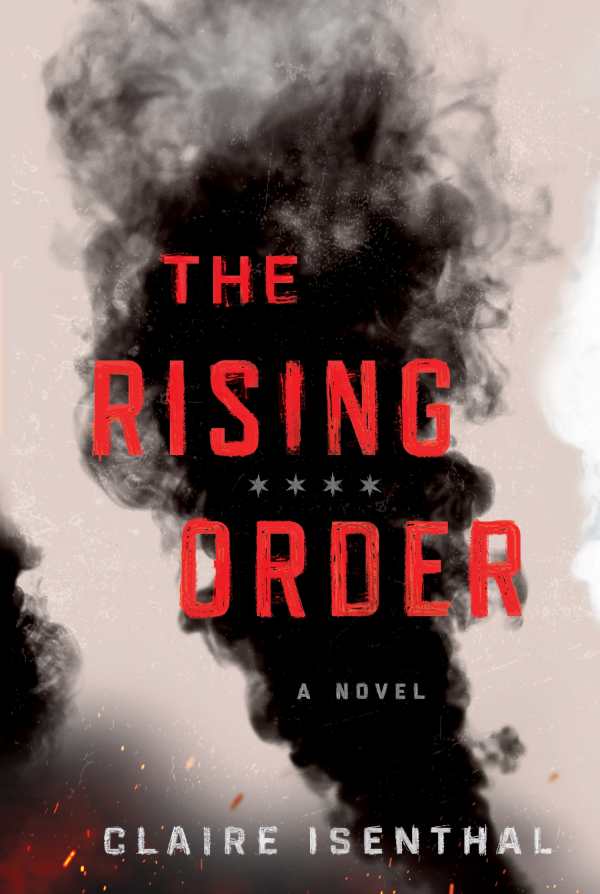The Rising Order
Trauma and social attitudes transform people’s worldviews in the startling thriller The Rising Order.
In Claire Isenthal’s thriller The Rising Order, a brainwashed terrorist uses an innocent woman to wreak havoc.
Wolf is part of REDS, a militant domestic terrorist organization whose members all adopt monikers based on predatory animals and forgo their old identities. REDS sees emotions and relationships as weaknesses and aims to inject its philosophy into American life.
During a deadly attack at a concert in Chicago, Wolf recognizes Flynn, the waitress who stood up for him a few years prior, and decides to take her hostage instead of killing her. Flynn now works as a recruiter at an important computing firm, Magnetic. Explaining that they will kill her family if she talks, REDS releases Flynn on a mission: she is to help Wolf infiltrate Magnetic and destroy Chicago’s electrical grid.
When they’re meeting together in secret, Flynn and Wolf discuss the oppressive realities of their lives, including Wolf’s upbringing in foster homes and the antisemitism and sexism that Flynn faces. The influence of toxic masculinity on who they are unites them. And to further their development, the narrative moves through time to cover Wolf’s strenuous initiation into REDS, Flynn’s young adulthood, and the pressing present situation for them both. Their complicated backstories prove essential to the plot’s momentum: Wolf feels conflicted about suppressing his emotions, for example, which drives him to deviate from REDS’s depraved plans. But the time that elapses between pivotal events becomes greater as the plot unfolds, and when Wolf’s threats against Flynn continue to go unrealized, their conversations become repetitive.
Throughout, Flynn’s willingness to work with Wolf and REDS strains credulity. While she reiterates that she wants to protect her family and friends, this explanation wears thin. She’s cognizant of the possibility that she’ll be arrested and that the consequences of her continued inaction could include the loss of hundreds of innocent lives, but instead of worrying about either possibility, she devotes her energy to wondering what it would take for Wolf to redeem himself.
Further, though REDS asserts that destruction must come before creation, their vision of the world they want to create is underattended. Nonetheless, the book becomes more philosophical as it moves toward its ending, shifting away from its early, thrilling action. Its intensifying emotional trajectory comes to a head late in the book, though only in service of the book’s cliff-hanger ending.
A terrorist organization enacts a slow, violent takeover of Chicago in the sobering thriller The Rising Order.
Reviewed by
Aimee Jodoin
Disclosure: This article is not an endorsement, but a review. The publisher of this book provided free copies of the book and paid a small fee to have their book reviewed by a professional reviewer. Foreword Reviews and Clarion Reviews make no guarantee that the publisher will receive a positive review. Foreword Magazine, Inc. is disclosing this in accordance with the Federal Trade Commission’s 16 CFR, Part 255.

